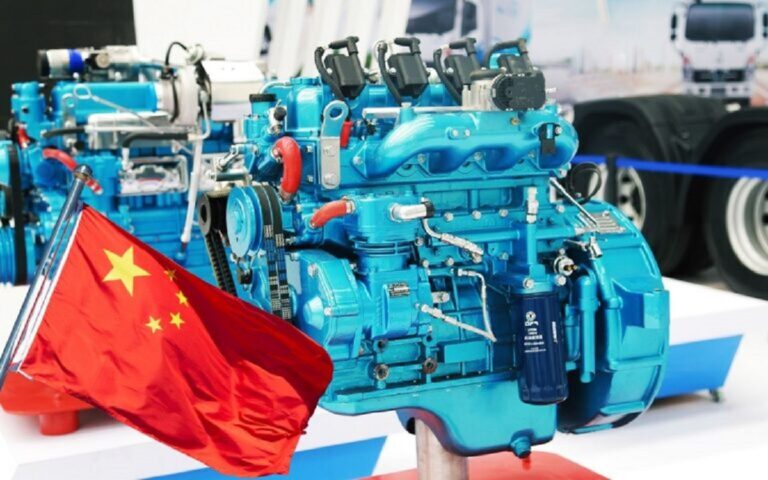Innovation in the world of sustainable energy is constantly evolving, but sometimes, breakthroughs come from the most unexpected places. Recently, China has introduced a surprising new contender in the search for alternative fuels: methanol derived from coal. Known as the “new black gold,” this fuel could not only reshape the future of combustion engines but also reduce our dependence on traditional oil.
Geely’s Bold Leap Into Methanol-Powered Vehicles
Just like a groundbreaking musical album that defines an artist’s career, Geely, one of China’s top automotive manufacturers, is making waves with its innovative use of methanol in vehicles. This move, the result of years of dedicated research and development, places Geely at the forefront of the automotive industry. By launching their first methanol-powered vehicle, the company is showcasing not only its commitment to innovation but also its responsibility toward the environment.
I remember attending a tech event where Geely’s booth was filled with excitement. The team eagerly explained how their latest model could significantly reduce emissions while maintaining strong performance, proving that sustainability and performance can go hand in hand.
China’s “Black Gold”: Turning Coal into a Sustainable Fuel
China’s vast coal reserves have long been both a resource and a challenge. With limited oil supplies, the country has turned to methanol, a cleaner alternative fuel derived from coal, to harness its natural resources in a more sustainable way. This conversion of coal into methanol helps decrease China’s dependence on imported oil while positioning the country as a global leader in methanol production.
This is similar to how musicians often repurpose old sounds to create something entirely fresh. By transforming coal into methanol, China is giving new life to its abundant resources, making them more sustainable and environmentally friendly.
The Technology Behind Methanol: A Cleaner Alternative
The process of converting coal into methanol is a testament to human ingenuity. Geely’s method for producing methanol-powered vehicles focuses on creating a cleaner-burning fuel that significantly reduces the emission of harmful compounds. Unlike traditional fuels, methanol burns more efficiently, leading to lower emissions and contributing to the fight against air pollution.
During a conversation with a Geely engineer, I was impressed by the precision involved in optimizing the combustion process. Just like crafting the perfect piece of music, every detail is considered to ensure the fuel’s efficiency and environmental impact are maximized.
Building the Future: Infrastructure and Strategic Adoption
For methanol to become a mainstream fuel, developing a supporting infrastructure is key. Geely isn’t just stopping at manufacturing methanol-powered vehicles; they are also investing in the creation of methanol refueling stations. This strategic approach makes the transition to methanol easier for consumers, ensuring that it becomes a viable option for everyday drivers.
Building this infrastructure is akin to setting up a live concert—every aspect, from sound to stage design, must be perfectly aligned for the experience to succeed. Similarly, Geely is constructing an ecosystem that supports methanol fuel adoption, ensuring its long-term viability.
Environmental and Economic Benefits: A Win-Win Situation
The shift to methanol offers substantial environmental and economic benefits. Methanol has the potential to drastically reduce carbon dioxide emissions, contributing to global efforts to mitigate climate change. On the economic front, methanol is a cost-effective alternative to traditional fuels, which could lower operational costs for vehicle owners while making sustainable transportation more accessible.
The International Energy Agency (IEA) has noted that methanol could play a significant role in reducing global greenhouse gas emissions, further supporting Geely’s commitment to both innovation and environmental stewardship.
Iceland Pilot Project: A Real-World Test for Methanol
To validate the reliability of methanol-powered vehicles, Geely launched a pilot project in Iceland, testing their vehicle in harsh and unpredictable weather conditions. The results were impressive: the vehicle performed exceptionally well, showing that methanol is a robust fuel option for diverse climates. This success has opened the door for potential European expansion, highlighting the fuel’s adaptability and durability in varying environments.
I recall a webinar where engineers shared insights from their Iceland trials. Despite the country’s challenging conditions, the methanol vehicle thrived, proving that this new fuel technology can stand up to even the toughest of environments.
Beyond Methanol: The Future of Cleaner Fuels
Looking ahead, Geely isn’t stopping at methanol. The company is exploring other alcohol-based fuels and methanol fuel cell technologies to further reduce emissions and improve efficiency. These innovations could lead to the development of even cleaner, more efficient vehicles, ultimately integrating methanol into broader energy systems.
This forward-thinking approach is reminiscent of how artists constantly evolve, exploring new genres and experimenting with different styles to stay relevant. Geely’s pursuit of new fuel technologies ensures they remain at the cutting edge of the automotive industry, ready to drive the future of sustainable transportation.
Final Thoughts: A Game-Changer for the Future of Energy
China’s discovery and development of methanol as a viable alternative to oil represents a significant leap forward in the pursuit of sustainable energy. Geely’s leadership in this space shows the importance of innovation in shaping the future of transportation. Just as a groundbreaking album can influence an entire genre, methanol has the potential to reshape the automotive landscape, ushering in a cleaner, more sustainable world.
What are your thoughts on alternative fuels like methanol? Join the conversation and share how innovations like these might lead us to a greener future.






